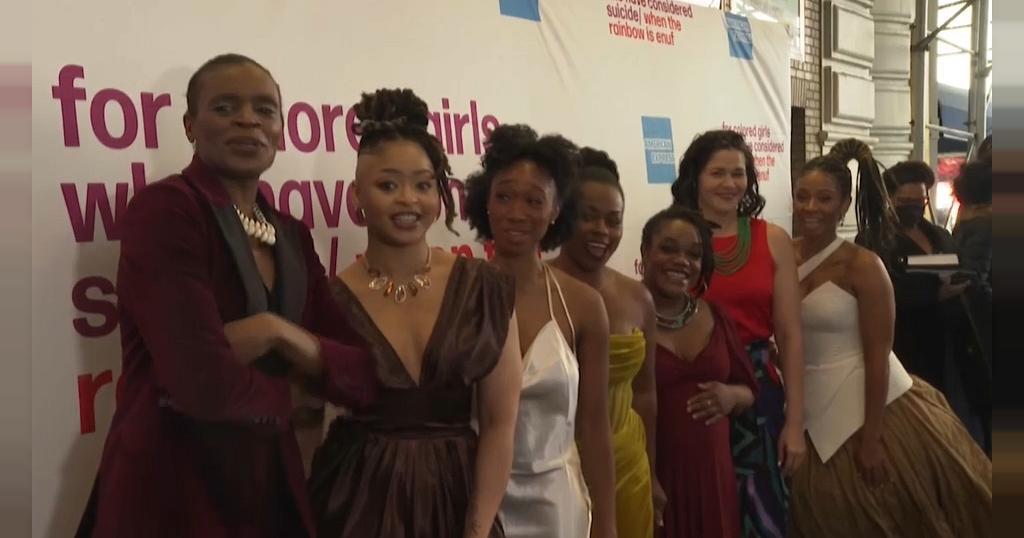Africa-Press – Botswana. A revival of “For Colored Girls Who Have Considered Suicide/When the Rainbow is Not Enuf” has opened at New York’s Booth Theater where the groundbreaking play originally opened in 1976.
The acclaimed theatre piece by the late Ntozake Shange tells the stories of seven women who have suffered oppression in a racist and sexist society.
The cast includes seven nameless black women identified only by the colours they are assigned
However, it was seven-and-a-half that took to the stage, as a very pregnant Kenita R. Miller was amongst the cast. She plays Lady in Red.
Before the show, Miller said she was expecting a girl and was excited the baby was – sort of – making her Broadway debut.
“I don’t even know if I could put it into words. It’s stunning, overwhelming, I mean there are certain moments in the play where you know if I’m dancing, she’s very still, but as soon as I stop, I can feel her and now since I’m like about to explode pretty much, I can see her moving. It’s incredible,” Miller said.
D. Woods, who plays Lady in Yellow says that discovering her co-star was pregnant was “beyond something you could have written.”
“This piece is about sisterhood, womanhood, and it’s like what better way to show that with motherhood like she is creating life and it’s a little girl,” Woods continues. “And we talk to her. We’ve given her many names. She has many aunties.”
The play uses a form called “choreopoem” created by Shange that uses poetic monologues accompanied by dance movements and music.
Director Camille A. Brown is the first Black woman to direct and choreograph a play in nearly 67 years – Katherine Dunham directed and choreographed a three-act dance revue in November 1955.
She agreed that there was something magical happening in her re-imagining of the Ntozake Shange play.
“No you can’t plan for it, but you dive into it, and you embrace it and all of the women have been so beautiful and supportive of each other, so it’s just been a really wonderful space to be in,” Brown said.
As for the show’s relevance 46 years later, Amara Granderson, who plays Lady in Orange, summed it up.
“There are things that are kind of reminiscent of the ’70s now again,” Granderson said.
“But I think that there are, we’re in a place now, especially in the past two years, it’s been such a pressure cooker. So, people of colour, women, black women are ready to speak their truth and are ready to be heard because societally the odds are against us.”
For More News And Analysis About Botswana Follow Africa-Press






